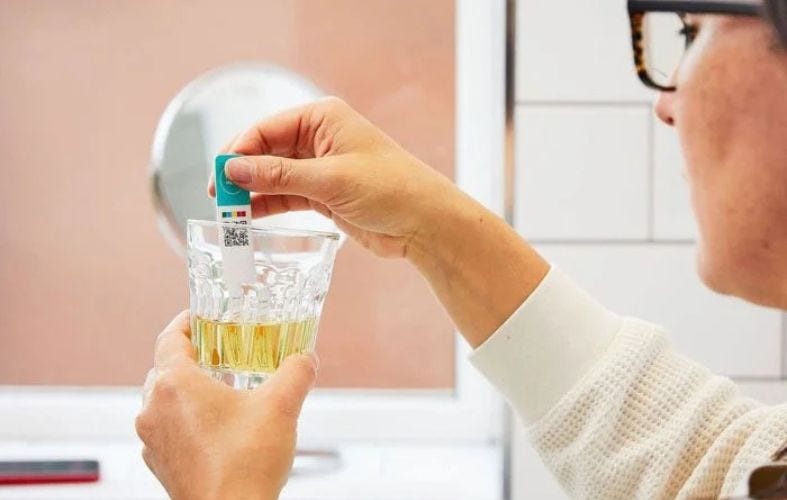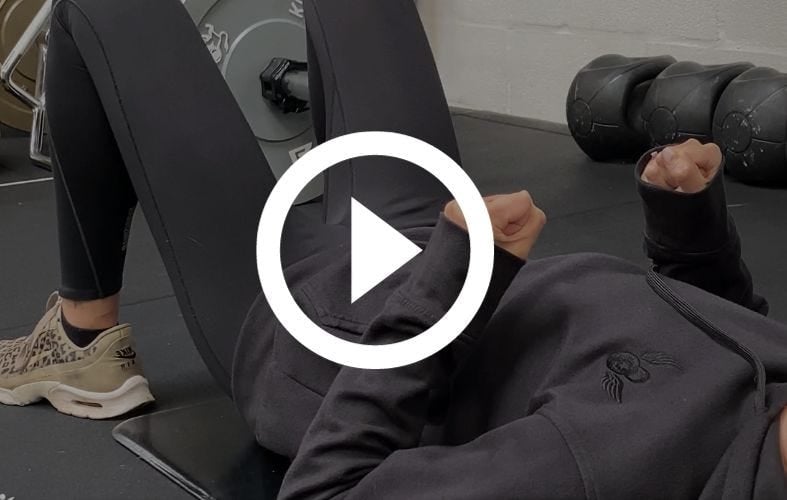What causes a UTI?

Share this page with friends
Can UTIs cause urinary incontinence or make it worse?
Understanding a bit more about UTIs
- A burning sensation when you pee
- Frequent and intense urges to use the toilet, even when little urine comes out
- Cloudy or smelly urine
- Pain in the lower abdomen or back
What Is urinary incontinence?
- Stress incontinence – caused by things like coughing, sneezing, or exercise.
- Urge incontinence – a sudden, intense urge to pee followed by leakage.
- Overflow incontinence – when your bladder doesn’t completely empty. Which leads to frequent dribbles.
- Functional incontinence – physical or mental impairment prevents getting to the toilet in time.

How can UTIs lead to urinary incontinence?
Bacteria that cause the UTI can inflame your bladder and urethra, making them highly sensitive and irritable. This irritation can lead to you feeling a really urgent need to pee, which can often be difficult to control (urge incontinence, as we mentioned above). Even if you’ve never experienced bladder weakness before, a UTI can make it really difficult to hold your pee before you make it to the toilet.
A healthy bladder holds urine until it's time to release it. However, if you have a UTI, the irritation can cause your bladder muscles to contract or spasm involuntarily. These contractions can leave you with a strong, sudden need to urinate and can cause leaks if you can’t control them.
If you leave a UTI untreated, it can weaken your pelvic floor muscles. The pelvic floor muscles are directly responsible for holding in your pee. When these muscles are weakened, you may not be able to ‘hold it in’ as easily, leading to leakage. This type of leak is particularly common when sneezing, laughing, or lifting something heavy (stress incontinence). But, with some easy-to-perform exercises, you can build a stronger pelvic floor and keep those muscles in check. We’ll talk more about these later in the article.
4. Changes in your nerves
UTIs can affect the nerves around your bladder, making them more sensitive than usual. Heightened sensitivity can lead to urge incontinence, even if your bladder isn’t full.
5. Overloading the Bladder
Sometimes, when people have UTIs, they might avoid urinating due to the discomfort it causes. However, holding in urine can actually exacerbate incontinence. A full bladder puts additional pressure on the bladder muscles, and if they’re already weakened by the infection, leaks are even more likely. Additionally, holding urine can allow bacteria to multiply, worsening the infection and further increasing the risk of incontinence.
How can you find out if you have a UTI?

Managing incontinence triggered by UTIs
The first step is to treat the UTI itself. If you’ve used our self-test kit to get your results, you can obtain antibiotics directly through the app. Antibiotics can take care of the infection quickly. Pair this with plenty of water and you’ll be right as rain in no time.
Pelvic floor exercises, or Kegel exercises, can strengthen the muscles responsible for bladder control. These exercises can be especially helpful for people who experience stress incontinence. By regularly practising pelvic floor strengthening, you may be able to regain some control over your leaky bladder. If you’re unsure of how to perform pelvic floor exercises, why not check out our handy video below? We enlisted the help of personal trainer Natalie Small to help us out:

Believe it or not, certain foods and drinks can irritate your bladder and make incontinence worse, especially if you’re experiencing a UTI. Don’t shoot the messenger, but you should avoid caffeine, alcohol, spicy foods, and artificial sweeteners, as these can all make your symptoms worse. Stick to water and soothing herbal teas that don’t add extra strain on the bladder. If you’d like to find out a bit more about it, why not check out our other blog posts to learn more about bladder-boosting beverages and which foods will keep your bladder healthy.
Dealing with UTIs in the long run
In the long run, preventing a UTI is going to be your best defence. With a few lifestyle changes and some healthy habits, you can reduce the risk of harmful bacteria entering the urinary tract.
- Stay well hydrated: Drinking plenty of water will help to flush out bacteria.
- Wipe from front to back: After using the toilet, you can minimise the spread of bacteria by wiping from front to back.
- Go for a pee after sex: Using the toilet after sexual activity will help clear your urethra.
- Avoid tight-fitting clothes: Wearing breathable, loose underwear can help keep the area dry and discourage the growth of bacteria.

What causes a UTI?
It’s really important to stay hydrated. A lot of people, especially with incontinence, may think drinking less fluid will help them. This isn’t the case, in fact, it’s thought that dehydration is one of the leading causes of UTIs. Drinking water is essential for keeping the body healthy. The British Nutrition Foundation recommends drinking six to eight glasses daily. For more information on how much water you should drink if you’re incontinent, take a look at our blog post.
- Having sex
- Being pregnant
- Conditions such as kidney stones that may block your urinary tract
- Conditions that make it difficult to fully empty your bladder – such as an enlarged prostate in men
- Catheters
- Having a weakened immune system – for example, people with diabetes or people having chemotherapy
- Not drinking enough fluids
- Not keeping the genital area clean and dry
By understanding what causes a UTI, you can start to take steps toward preventing them. Drawing from the NHS website, they outline some really helpful do’s and don’ts:
Do:
- Wipe from front to back when you go to the toilet
- Keep the genital area clean and dry
- Drink plenty of fluids, particularly water – so that you regularly pee during the day and do not feel thirsty
- Wash the skin around the vagina with water before and after sex
- Pee as soon as possible after sex
- Promptly change nappies or incontinence pads if they're soiled
Don’t:
- Do not use scented soap
- Do not hold your pee in if you feel the urge to go
- Do not rush when going for a pee – try to fully empty your bladder
- Do not wear tight synthetic underwear, such as nylon.
- Do not drink lots of alcoholic drinks, as they may irritate your bladder
- Do not have lots of sugary food or drinks, as they may encourage bacteria to grow
- Do not use condoms or a diaphragm or cap with spermicidal lube on them – try non-spermicidal lube or a different type of contraception
Symptoms of a UTI?
The symptoms of a urinary tract infection aren’t always obvious. So, if you’re experiencing any of the below, you may want to grab yourself a UTI test kit just to be sure.
Symptoms include:
- Pain or a burning sensation when peeing
- Needing to pee more often than usual
- Needing to pee suddenly or more urgently than usual
- Pee that looks cloudy
- Blood in your pee
- Lower tummy pain or pain in your back, just under the ribs
- Your pee may also be dark or smell. If this is your only symptom, it might be because you've not been drinking enough water.
If you’ve ever had a UTI before, you’ll know they’re a painful and uncomfortable experience. Sometimes, getting an appointment at your GP to run tests and be prescribed antibiotics can take absolutely ages. During this time, you’re left waiting around in constant discomfort. Not good. So, what can you do? With our UTI self-test kit, you can get results straight away and even order a prescription to get treated through the app. Dodge those long wait times at the GP surgery and get an accurate result in the comfort of your own home.





